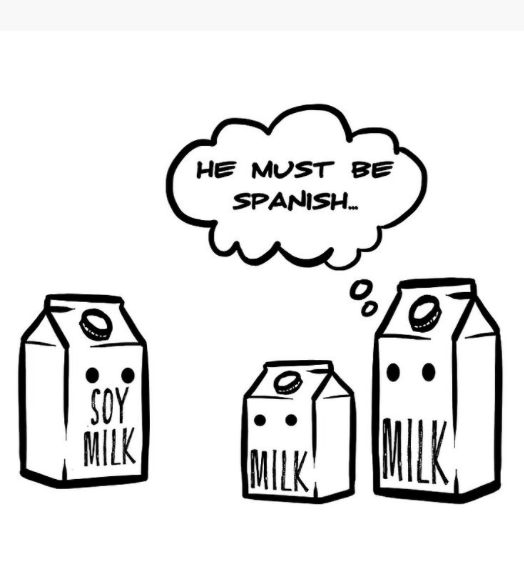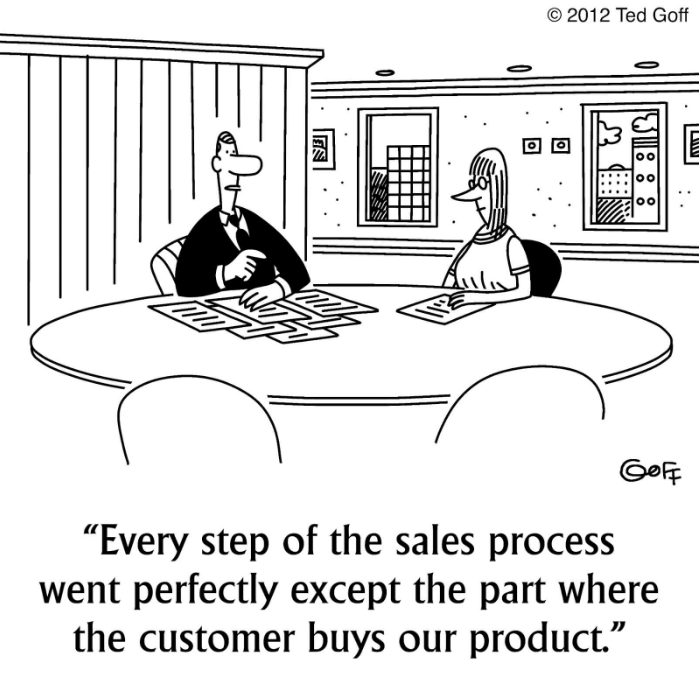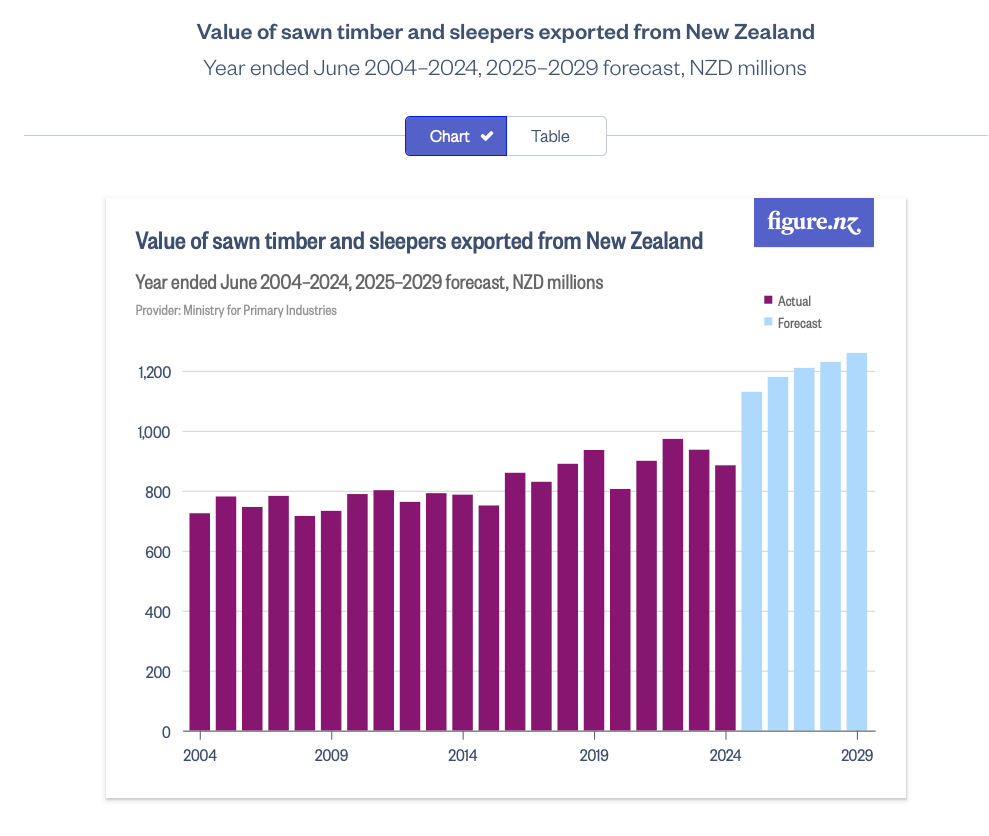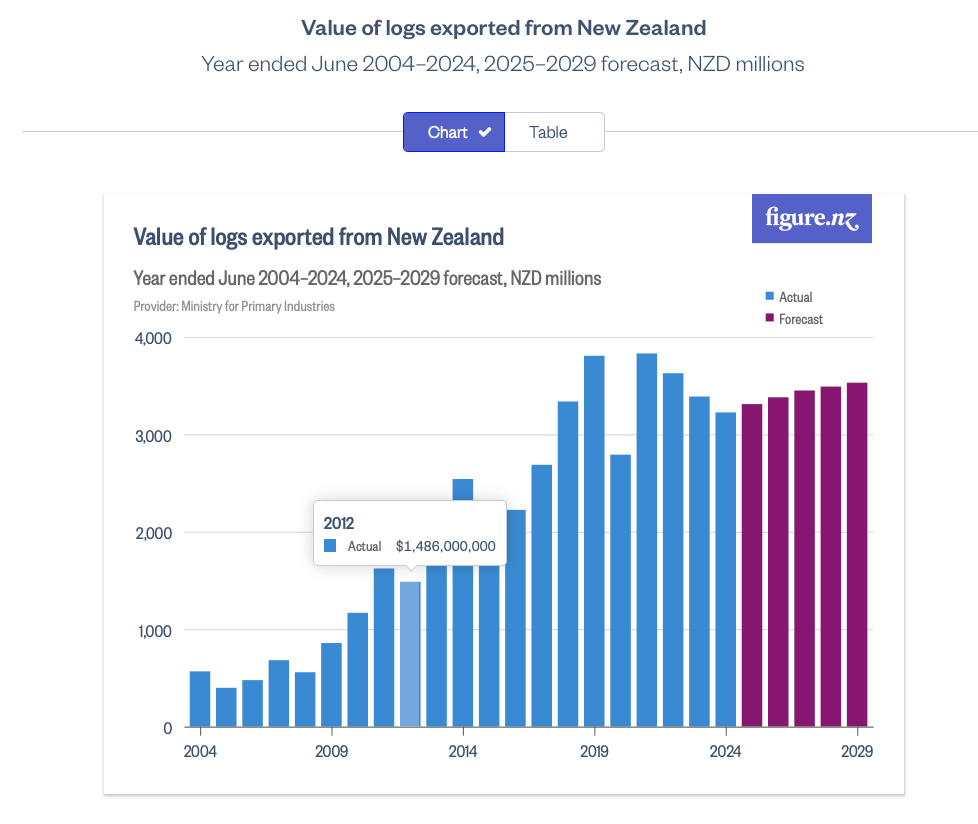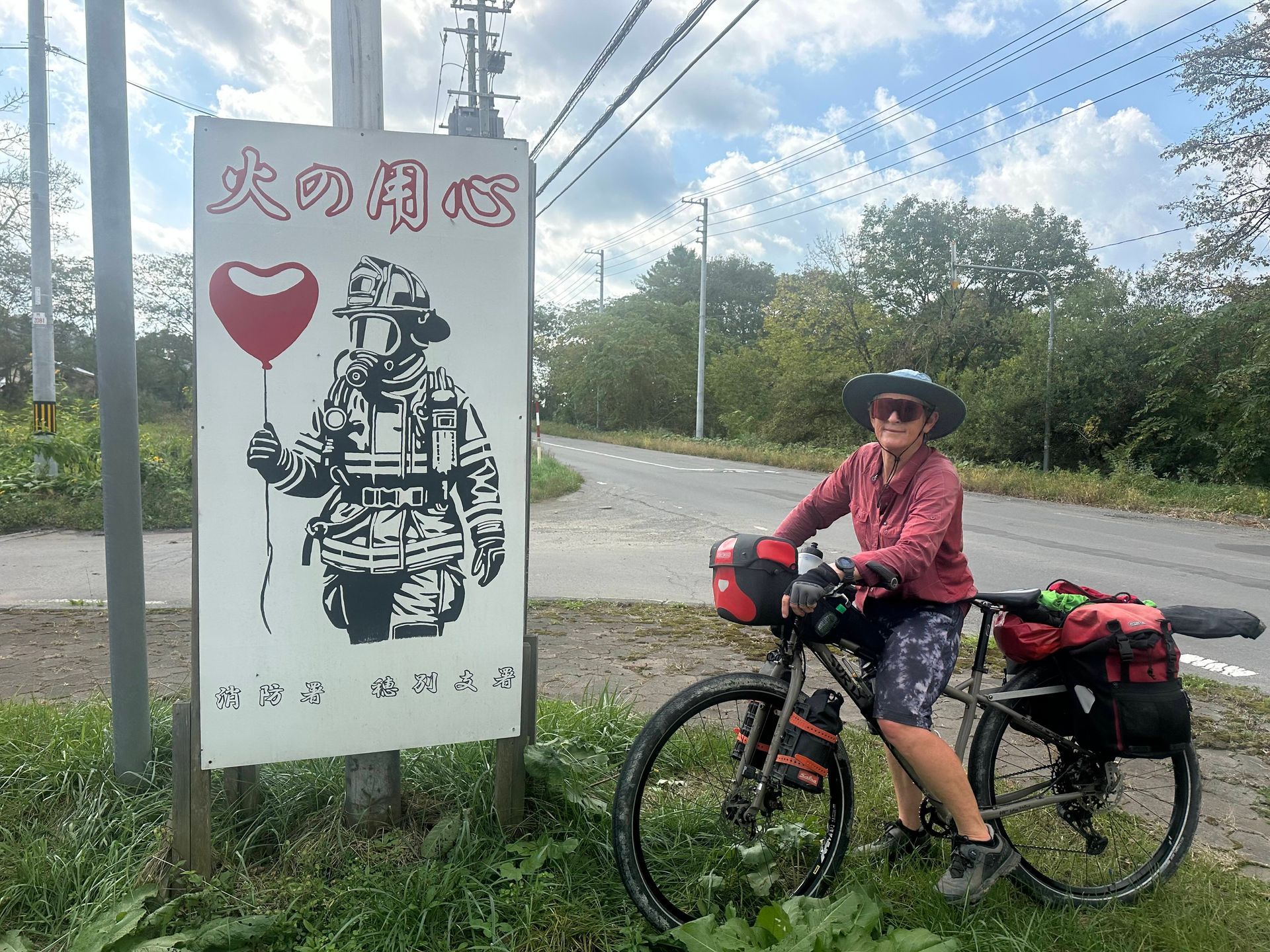Things I Don’t Understand (2)
Barossa grapevines
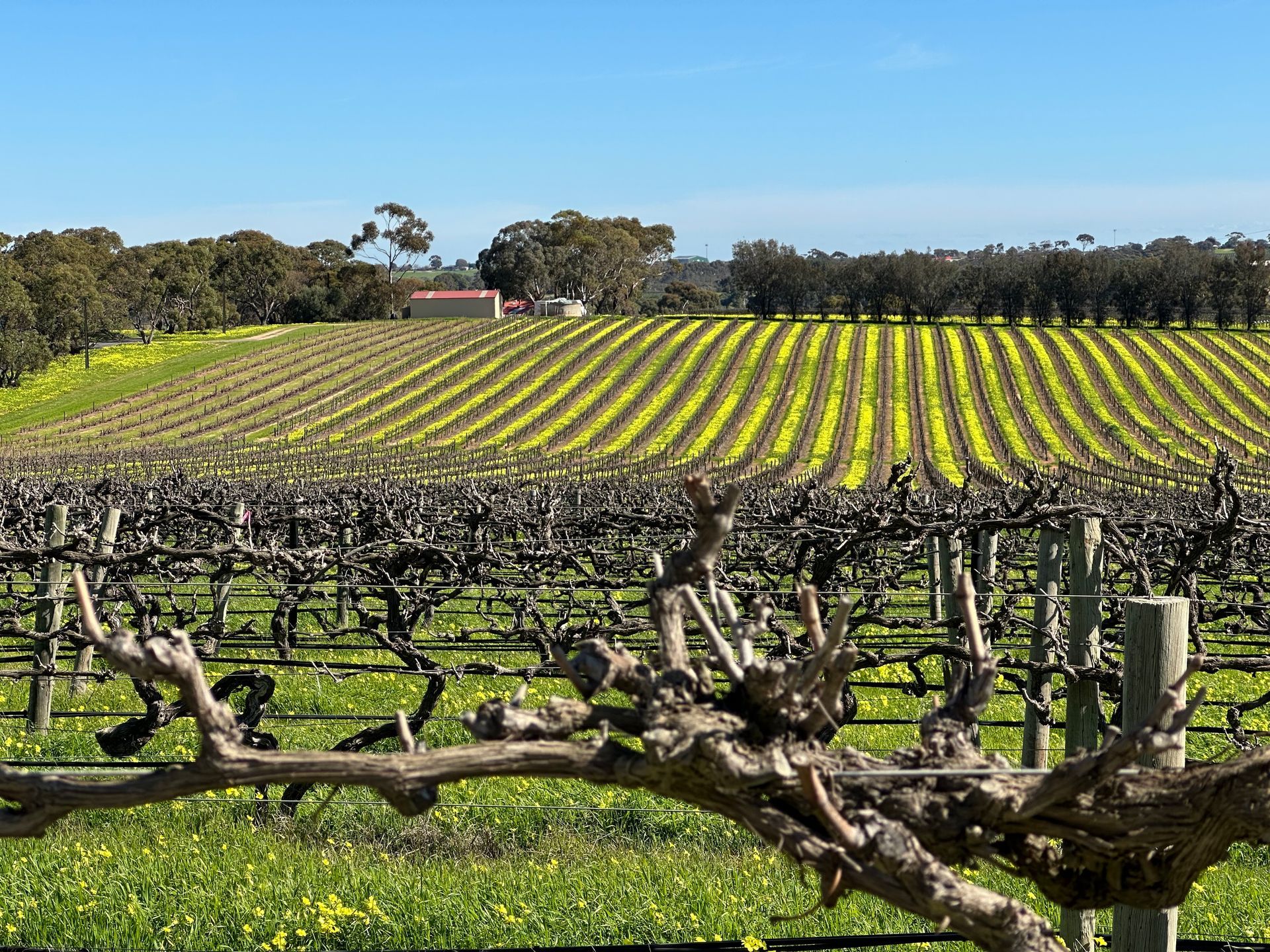
Five years ago I wrote a blog about things I don’t understand, noting they were mostly to do with people. My position on that hasn’t changed a lot, but I have recently come across some more non-people things I don’t understand, namely:
- Why the government has repaired the Wellington national war memorial bells at a cost of $10 million, but fired the person who plays the bells.
- Why Fonterra has sold its added-value product lines despite it being government mantra over the last three decades that NZ should add value to its primary production to boost the economy.
War memorial bells - Pukeahu National War Memorial: The national war memorial bells in Wellington have been silent for the last five years for earthquake strengthening work. The bell tower was built in the 1920s with the help of crowd funding – families were first in line to donate bells to commemorate particular campaigns and military units in which their loved ones died. It opened in 1932 in front of thousands of people and the bells were played up to three times per week until 2014 when a first bout of earthquake strengthening started, taking 4 years. The tower reopened in 2018, then was abruptly closed again in 2020 due to earthquake risk from the bell frames, rather than the tower itself. The second phase of earthquake work is due to be completed by Anzac Day 2026, the week the current bell player, Timothy Hurd, will have his job disestablished.
Timothy is New Zealand's sole carillionist and has been playing the 74 bells for about forty years. He has worked with the team refurbishing the bells (including scrubbing rust off the bearings) and advised builders on how to strengthen the bell frames. However, the Ministry of Culture and Heritage disestablished twelve jobs to meet Budget 2025 cuts, one of these being the bell player. The Ministry says the bells will be played once a year on Anzac Day and they might get a contract bell player in for that occasion. Presumably Timothy Hurd, if there are no other bell players in New Zealand! They must be hoping he wants the work.
There’s outrage about the bells no longer being played to honour the dead. There should be equivalent outrage regarding spending of 10 million dollars taken from the living in a time of escalating costs, to refurbish bells that may no longer be played.
Fonterra selling its added-value product lines: since the science reforms of the late 1980s, a government mantra has been that we must add value to New Zealand’s primary produce as a critical means of boosting our economy. Research funding in agriculture, fisheries, aquaculture, forestry and food has been closely tied to this concept.
It’s been obvious for quite a while that ‘added value’ is easier said than done. When I asked a friend working for Fonterra why most of our milk is exported as powder, rather than as added value products, he said it was because milk powder is the easiest product to sell when you have annual variations in supply and demand of the raw commodity - milk. Milk powder can be stockpiled, to bridge times of low supply in winter and to buffer against e.g. China suggesting New Zealand milk is contaminated with botulism as part of a bargaining tactic (it turned out the positive bacterial test was for a related bacteria, but not one that causes disease).
This friend also pointed out that ‘value add’ in relation to premium products will only ever apply to a proportion of a bulk commodity like milk – if all the milk was turned into premium product, the premium product would then be the commodity! Premium is about supply and demand - supply has to be restricted for people to see a product as premium.
Anyhow, it looks like Fonterra have finally realised the challenge of value-add, despite spending decades trying to come up with added-value products like 1 day-fermentation mozzarella. They have sold their product lines, like Anchor butter and Mainland cheese, to international dairy giant Lactalis.
Lactalis originated in France in 1933 – Andre Besnier sold camembert under the brand made from 35 litres of locally collected milk. Lactalis increased its milk supply, started to diversify into milk, butter and creme fraiche in the 1950s, expanded into dairy processing in the 1960s, started exporting in the 1980s, acquired international milk-product processing facilites in the 1990s, a behaviour which they have continued to this day. Evidently, they still believe in added value rather than selling commodities.
Fonterra is touting the sale to Lactalis as a win because it can keep selling its (commodity) milk powder to Lactalis who will use it to manufacture added value products, while Fonterra will return a significant one-off payment to its shareholders (while presumably reducing its ability to pay them money in the future).
So who is right? Lactalis and our governments of the past? Fonterra and our government of today, with its focus on tourism for growth and notable omission of the ‘added value’ rhetoric?
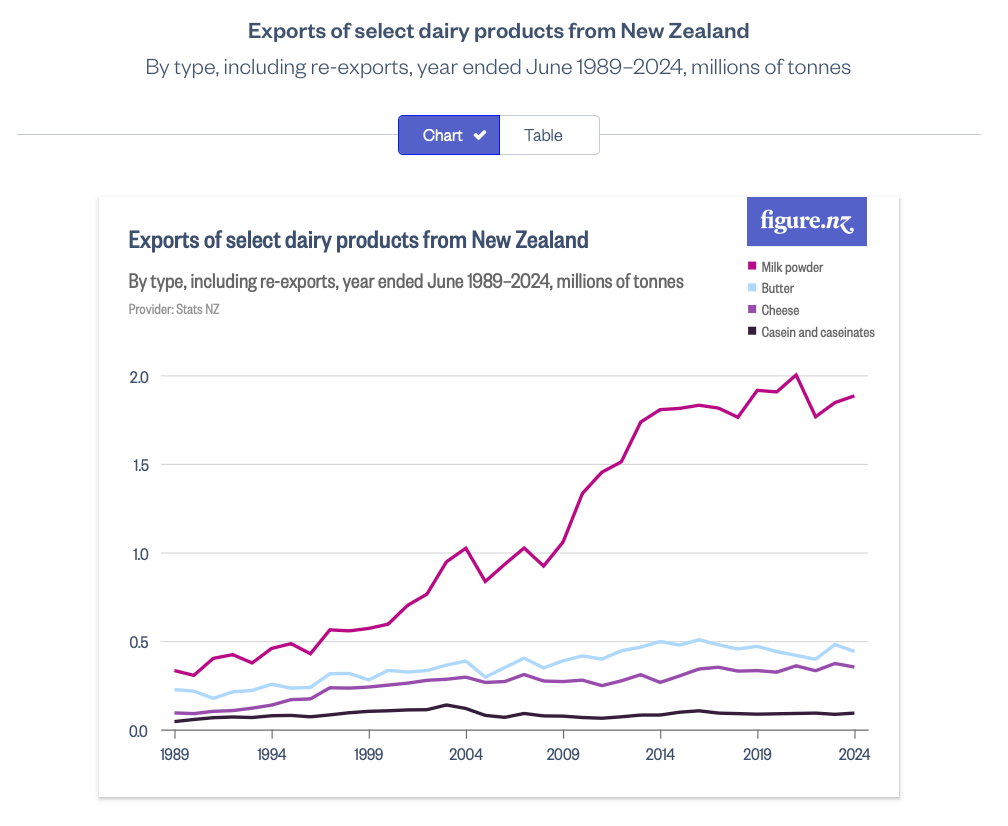
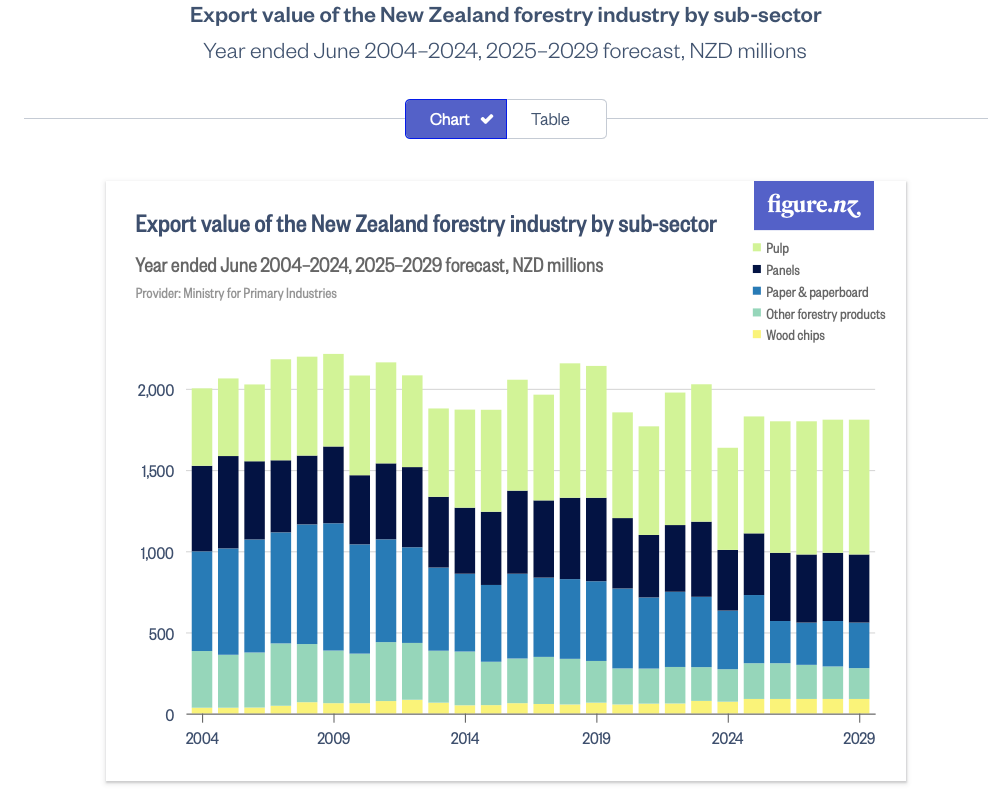
If we can’t get added value right in over thirty years, maybe it isn’t the right strategy for New Zealand. It has worked for wine…but no one sells wine grapes internationally so there’s no temptation to market the commodity. It hasn’t worked for milk or timber – we have continued to export powder, logs, wood pulp and wood chips apace. If a generation of effort doesn’t make a change, perhaps it’s time to pivot? Whether pivoting to tourism is the right move is a very different question.
So many things I may never understand. Because no one else does, either?
